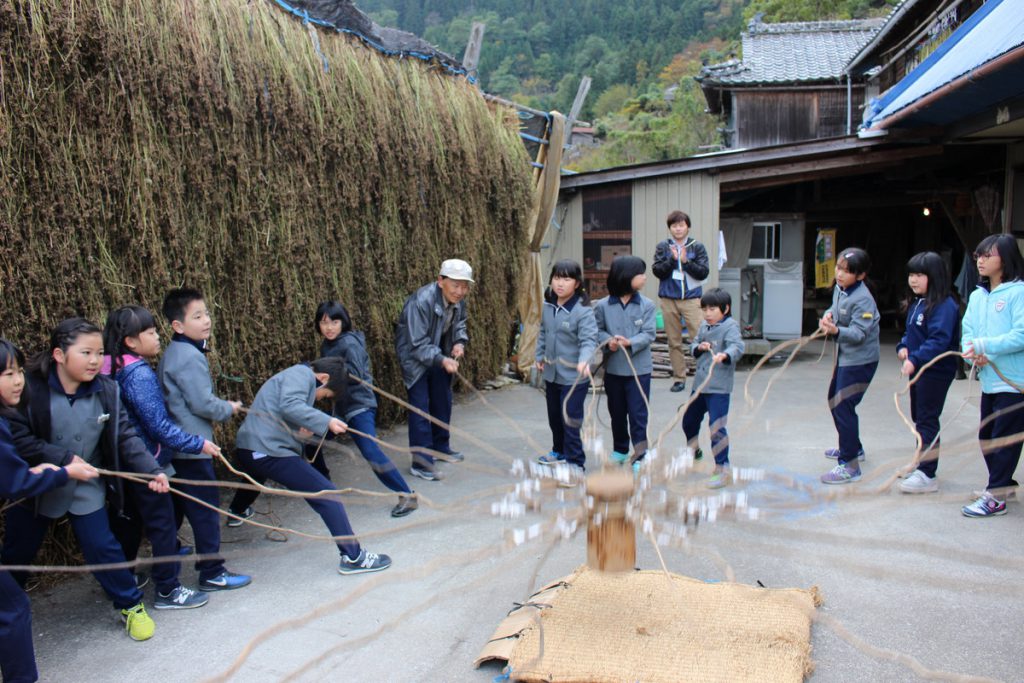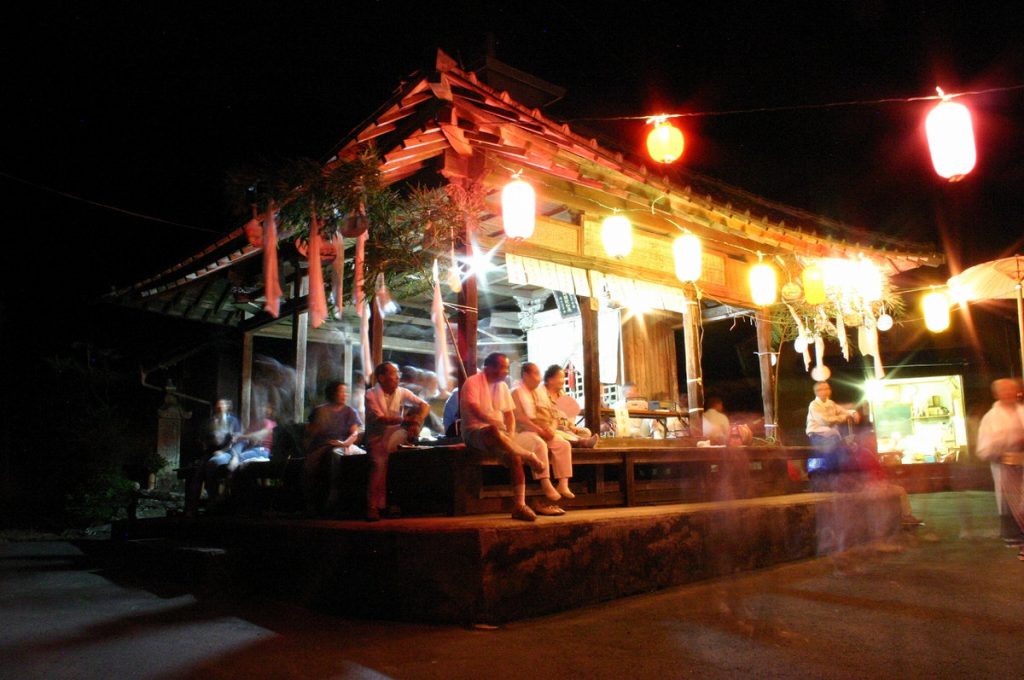 Culture associated with the local environment
Culture associated with the local environment
The traditional cultures in Nishi-Awa are wisdom for preserving the landscape and culture of the villages in the original state.
The traditional way of preserving food and local cuisines
In the mountainous villages, it is customary to sun-dry harvested products to make preserved foods whole of flavor. The products are sun-dried, hung from a rudder-like tool called Hade, or under the eaves. The wind that blows down from Mt. Tsurugi in winter is perfect for making dried foods, producing the village’s specialty products such as dried sweet potato and dried persimmon.
Potatoes are stored in a hole about two meters deep dug under the barn floor called Imoana or Imotsubo. The storage hole’s temperature and humidity are maintained using straw and chaff, so Goushuimo potatoes, sweet potatoes, and seed tubers are preserved well. Simple rural dishes such as rice and soba porridge, Mochi (rice cake) made from grains, and Dekomawashi made from Goushuimo potatoes have been passed down for generations.
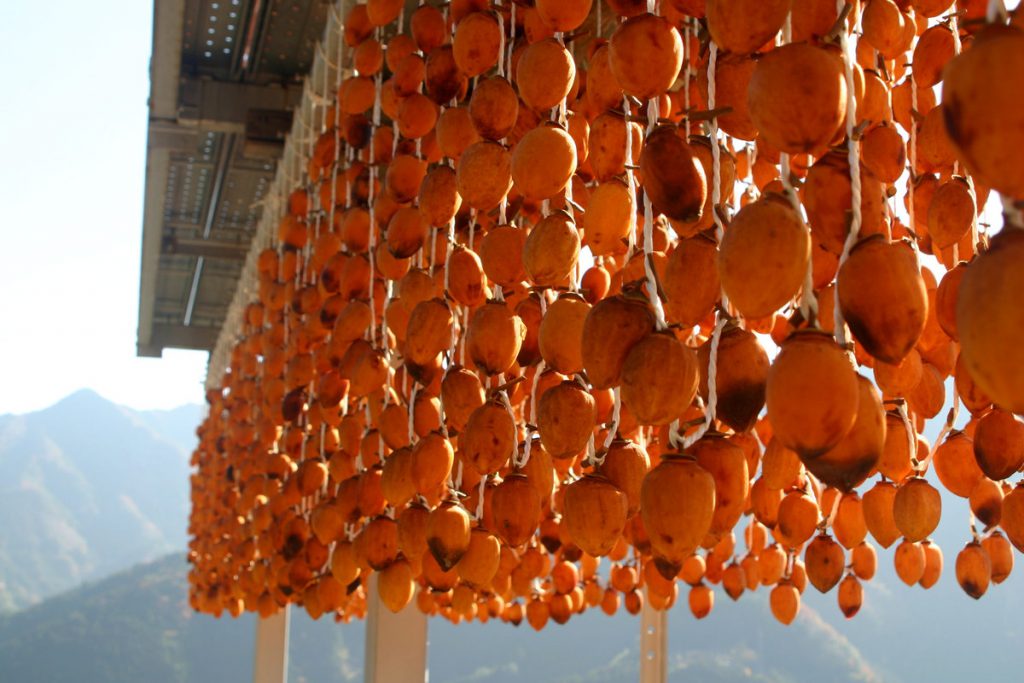
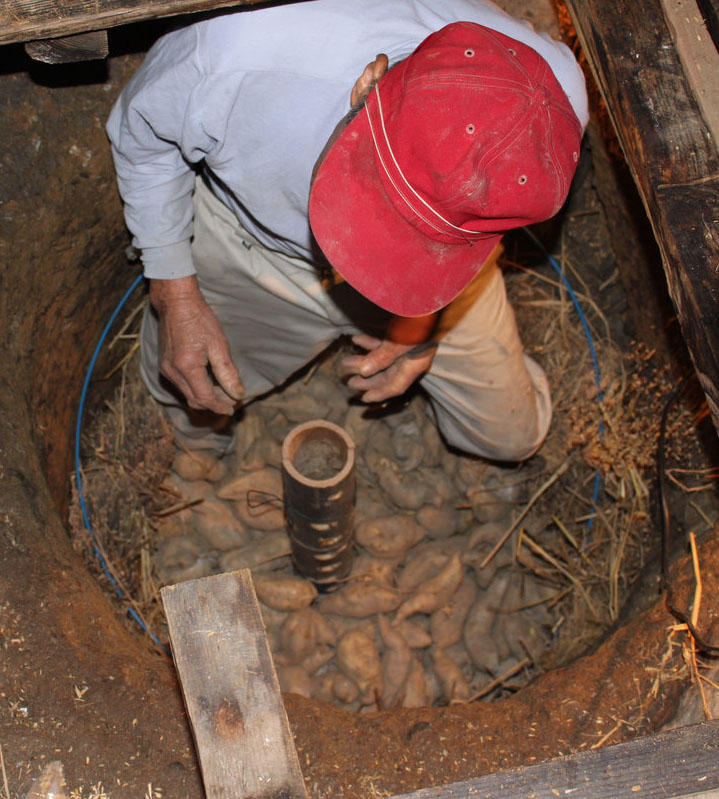
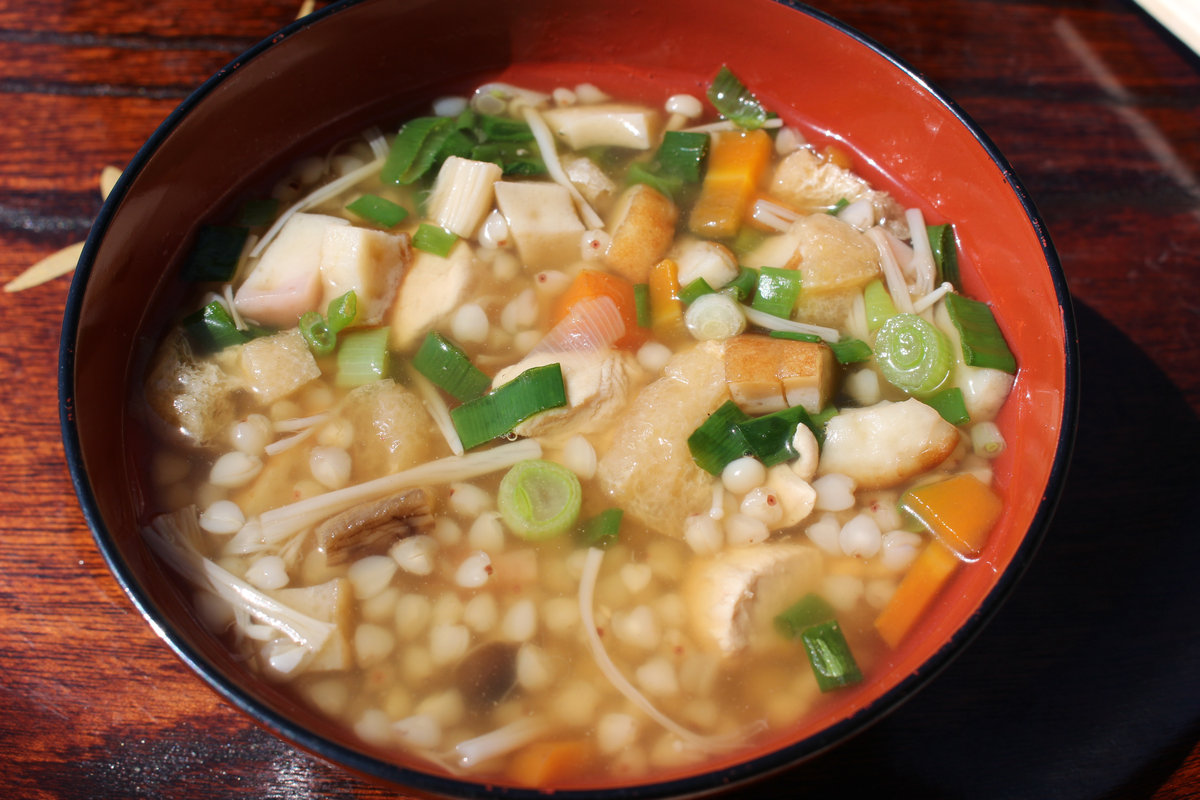
Traditional events
As recreational activities between busy schedules of farm work, traditional events have been cherished and handed down until today; it is believed that “Nishiiya-no-Jindaiodori,” a nationally designated important intangible folk cultural property, dates back its history to the early Heian period, more than 1,000 years ago. An agricultural festival called “Oinokosan,” which is hardly seen in many parts of Japan today, is still practiced by children in this area. Many work songs that have still been sung were created during hard farm work; the farmers sing them to the mountains and valleys while working, and their voices are impressive. For Iya-no-Konahikibushi, one of the work songs, a national singing contest is held in the local city.
Each district has a small temple hall, a symbolic place for information exchange and mutual support between the villagers, where traditional events such as Gomataki, Daishiko, and Juzumawashi are still practiced.
